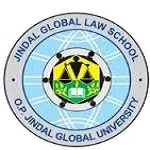Jindal Global Law School, Sonipat, India affiliated with O.P. Jindal Global University, has called for the papers on The Role of Judges and Judicial Independence in Democratic Societies.
Judicial independence is a now prime talk in almost all the democratic countries across the world. In India, judiciary play a very prominent role in protecting, interpreting the Constitution and Laws according to the facts and circumstances of each case, formulating new rulings taking into account of the changing times of the society, scrutinizing new legislation and make changes if necessary, deciding the constitutional questions, giving advices to the executive and legislative bodies, protecting the fundamental rights of the citizens guaranteed by the constitution and so on… By all these means, we can easily presume that Judiciary is an integral part of our government i.e. the democratic process. Judiciary is not only confined to the administration of Justice, they are in the every process of legislative functions and always be there to protect the rights of the citizens.
However, Judiciary, one of the organs of government, should have the freedom from any kind of influence, especially individual or political/power influence or from the control of other two organs i.e. the executive and the legislature, of government. Freedom in the sense, Judge must have the independence to take decisions only on the merits, and not due to any pressure from any of the individual or any government body, which is of the prime importance in the Judiciary. It is well known fact (myth) that public highly casts hope faith on judiciary. Constitution has given full powers to the Judges to act independently in dealing with their functions, without any fear or in favour. Judicial Independence can be interpreted with various meanings in different contexts, could be interpreted in three forms, one would be for the appointment of judges, secondly, it could be stated for the autonomy of Judges in deciding the cases to be on merit basis, and third form could be in the context of Judges outcome, whether outcome would be the result of any undue influence made by political or corporate leaders. Hence, it is high time for us to bring out the actual meaning of the word Judicial Independence and to protect the Judges from these kinds of external interference and coercion.
At this outset, Jindal Global Law School invited the participants to analyze extensively and question on the following themes closely related to the role of Judges and Judicial Independence in Democratic Societies:
- Judicial appointments – how and by whom should judges be appointed? What safeguards are necessary to prevent bias in selecting judges?
- Judicial Interpretation – how should judges approach contested social and political issues? To what extent and under what conditions is “judicial activism” – where judges strike down unjust laws – acceptable in a democratic society?
- Language in legal judgments: what are the societal impacts of judicial language beyond the ratio of a particular case? Can judges influence social movements, either deliberately or unintentionally, through the way they frame judgments and/or through the words they choose? Is this kind of influence permissible/desirable in a democratic society?
- External influences on judicial decision-making: which external influences (i.e., political actors, powerful business interests, religious groups, etc.) affect judicial decision-making? How can judges be effectively insulated from these influences? And how/why is such insulation beneficial for judicial independence?
Jindal Global Law School called for the abstracts on the Judges role and/or independence from law students from across India at the 3rd JGLS National Student Research Colloquium. The above topics are simply suggestive, but students may even submit on other closely connected topics to the main topic, ensuring that those topics should be focused on India, however can give their discussions also on other democratic countries.
The participants of the colloquium should be the current BA/LLB, LLB and LLM students. Last date for submission of abstract of 300-500 words is on March 1, 2015 to email address: rabeyratne@jgu.edu.in., along with cover letter and proof of affiliation with a university. Acceptance of the applicants for colloquium will be notified by 15 March 2015. Final papers to be submitted on or before March 28, 2015.
The Colloquium to be held on two days i.e. on 2nd and 3rd days of April, 2015. Best paper and the most creative/original paper presented at the colloquium will be awarded with Prizes.
Colloquium is being organized by the Jindal Legal Writing and Research Society.
by Anitha Gutti

